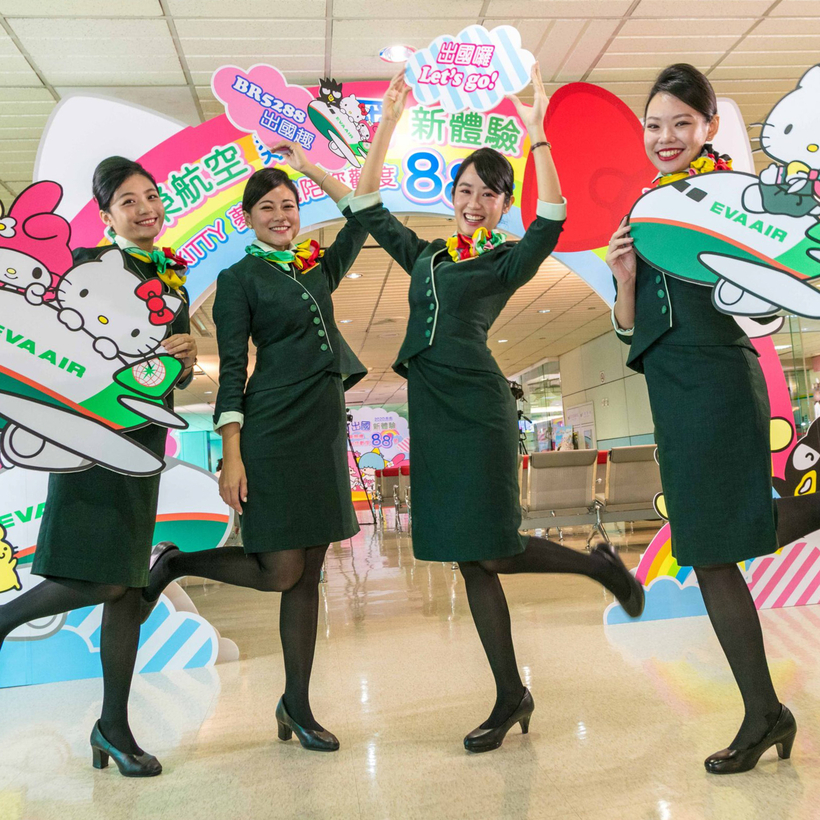Before a recent sold-out flight aboard the low-budget airline HK Express, 112 passengers went through security as they always would—and had their temperature checked, as they sometimes would. Then they boarded the plane without luggage. And with all the middle seats blocked off, most headed for the window to gaze out at the Hong Kong skyline for the duration of the 90-minute journey.
There was no airplane food served to sniff at, or drinks poured to ease the nerves. Instead, the sole goal of the “UO Flycation” flight was to re-discover the magic of air travel during these stormy coronavirus days. Upon landing, passengers were given a colored lanyard to avoid having to endure Hong Kong’s mandatory 14-day quarantine. The memory? Priceless, perhaps. The cost? $50.
They’re not the only airline to embark on a so-called flight to nowhere. Qantas sold out its one-off October flight in 10 minutes. Their plane took off from Sydney, Australia, and flew over the country’s famed landmarks before returning seven hours later at a hefty cost ranging from $575 to $2,765, depending on the class of ticket, according to The Independent.

Thai Airways offered a special “magical flying experience” in November when their three-hour flight soared over 99 of Thailand’s sacred sites.
These experiences may pale, however, when compared with Taiwan’s Eva Airways’s upcoming “Fly! Love Is in the Air” promotion. For the sold-out flights already scheduled on Christmas and New Year’s Eve, 20 men and 20 women—all young and single—will depart from Taipei’s Taoyuan International Airport and engage in several rounds of speed dating 30,000 feet in the air, while enjoying in-flight meals prepared by a Michelin-starred chef. Three hours later they’ll return to the airport, possibly with coronavirus-free love in their eyes.
Qantas sold out its one-off October flight in 10 minutes.
Emboldened by low coronavirus rates in much of the Asia-Pacific region, Genting Cruise Lines and Royal Caribbean International are also getting into the action. Last month, Genting’s World Dream cruise ship set sail from Singapore’s Marina Bay Cruise Centre with 1,400 passengers on board.

All passengers and crew are tested for the coronavirus before boarding, and staff have the authority to return to port within six hours if a case develops. Though buffets are banned, passengers have free rein of the ship’s facilities and restaurants during the two- and three-day cruises, which sail along the Strait of Malacca and the southern tip of the South China Sea before returning.
Not to be outdone, Singapore’s Changi Airport is also taking part. For the first time ever, they are allowing local visitors to stay overnight via a “glampcation” on the premises. The main selling point is that participants can wake up to the sound of the airport’s unique on-site “Rain Vortex,” the world’s largest indoor waterfall at 130 feet high. Thirteen-foot-wide glamping tents and picnic sets with tablecloths and chilled wine are available throughout the promotion, which is expected to last until the beginning of a hopefully better and healthier 2021.
Scott Murphy is a Hong Kong–based journalist

